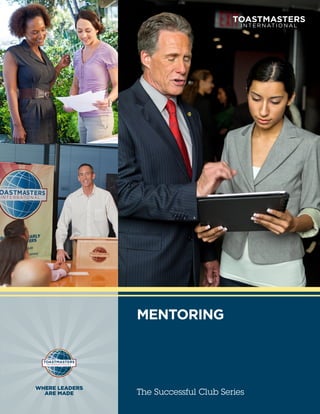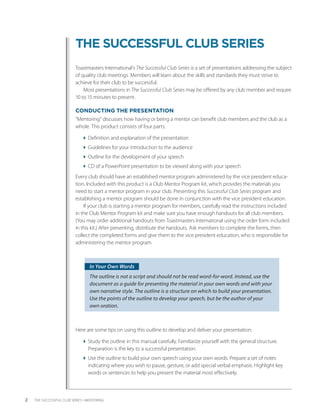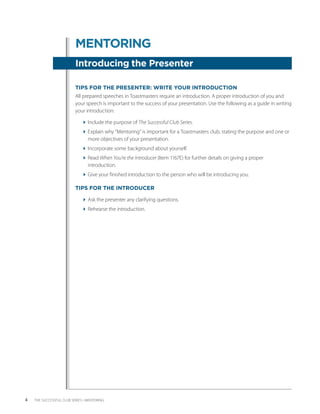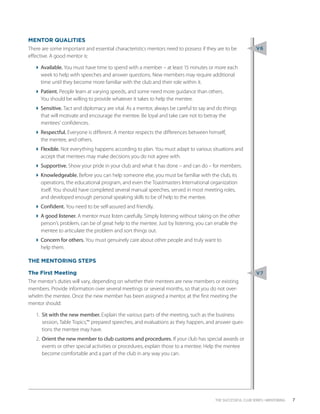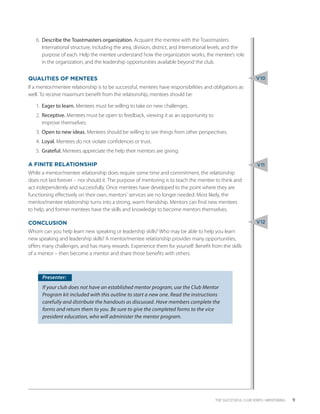Mentoring provides significant benefits to both new and experienced members, as well as the club as a whole. A mentor guides a mentee, serving as a role model and coach to help the mentee learn skills, participate more actively, and advance more quickly [1]. The mentor also benefits by continuing to develop their own skills and knowledge through the mentoring relationship [2]. For the club, an effective mentoring program helps reduce member turnover and increases member satisfaction, which leads to greater retention of members [3].
